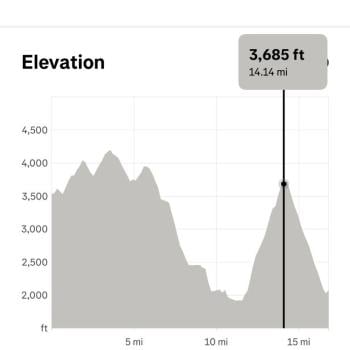“Crazy Train”
I was training on my spin bike this afternoon thinking about this post and the song “Crazy Train” by Ozzy Osbourne came on and I got to thinking about the lyrics and how some songs aged well. This is one of them.
The album, Blizzard of Ozz was Ozzy Osbourne’s debut album as a solo artist. Featured on this album was the song “Crazy Train”. The lyrics of the song deal with the ongoing cold war and the annihilation and destruction the world observed because of it. It was the first verse that brought me down this rabbit hole:
Crazy, but that’s how it goes
Millions of people living as foes
Maybe it’s not too late
To learn how to love and forget how to hate
These words really seem to resonate just as well in 2024 as they did in 1980.
Love
Advent week 4 is about Love. Love is a complicated experience. As we often do in the West, we removed all the rich cultural depth of the word and boiled down to one word with many meanings. As someone who is been in committed relationship for a while now, love is an action verb and a contemplative practice that needs to be worked on every day.
I shared a few weeks back that if you turn on the news right now, at least in my cultural context, you will be bombarded with an us versus them mentality. The migrants, the LGBTQ+, the fill in the blanks person who does not fit our cultural norm. And if you take a stand against it, you are “woke”, unfaithful, ungrateful, or un-American. In therapy speak, we are bombarded right now with a lot of defensiveness. Defensiveness is often met with more defensiveness, criticism, contempt, and stonewalling.
Love is a spiritual practice. Love enhances intimacy and counters fear. In love, we must cultivate a grace that is deeper, it is an embodied practice, a physical and emotional posture that does not see the distance that separates us from each other, the color of our skin, our sexuality, our gender, our nationality or our socio economic status. As with a partnered relationship, as a practice, we as a society need to work daily to cultivate love in our work, our school, and our communities. A Christianity without an unconditional love for all is not a Christ centered Christianity.
Unconditional Acceptance
What if we replaced Christ in all the places it is written in the New Testament with the word Love? The word “Christ” occurs most often in the New Testament. It appears 516 times in the New Testament and in every book of the New Testament, except for 3 John. It occurs 66 times in the book of Romans. The apostle Paul constantly refers to “Christ” to teach us about salvation. We all embody a Christ presence but we do not often lean into it, often letting our ego nature get in the way.
Let us for a moment pretend that Paul is the storyteller in the song “When Love Comes to Town” by the Irish rock band, U2. Here, the story follows a narrative of the protagonist’s journey from being lost and adrift (“I was a sailor, I was lost at sea”) to finding love and experiencing its profound effects on his life (“I was under the waves before love rescued me”). The lyrics also touch upon the theme of personal growth and change, as the narrator reflects on his past mistakes and the consequences of his actions (“Now I stand accused of the things I’ve said”).
When we accept Christ’s presence in ourselves (“When Love Comes to Town”), we learn to let go of our ego nature and we allow God’s unconditional love to guide us through all our journeys.
Love Heals
Love, as stated in this article, plays a vital role in the Christmas story. Because of Joseph’s love for Mary, he didn’t stone her when he found out she was pregnant with what he thought was a child out of wedlock with another man (Matthew 1:18-19). Mary has a natural motherly love for Jesus, and ultimately, we see God’s love for everyone by sending his son for us (John 3:16).
Love becomes the central theme of Jesus’ ministry. A radical love that was captured best in Galatians 3:28 where the author proclaims, “There is neither Jew nor Gentile, neither slave nor free, nor is there male and female, for you are all one in Christ Jesus.” We are all one in Love.
When we look at Jesus and how he and later his followers carried themselves, we see a group of Jewish people not afraid to stand up to the system of oppression and hypocrisy around them. Jesus’ death was the greatest demonstration of how love heals. In the story, myth and lore about Jesus’ death, we are told that God’s love transcends evil, conquers death, heals all wounds.
Later, despondent and disappointed over the events of Jesus’ execution, the story is told about the disciples walking to Emmaus when they encountered a stranger who would describe to them all the teachings that Jesus had once taught them. Realizing that this stranger was Jesus, these disciples began spreading the teachings of Jesus and as the movement grew, became more emboldened and would eventually grow into the movement it has become today. These early disciples taught us that love heals when we take action.
Advent Week 4 challenges us that maybe it’s not too late to learn how to love and forget how to hate.













